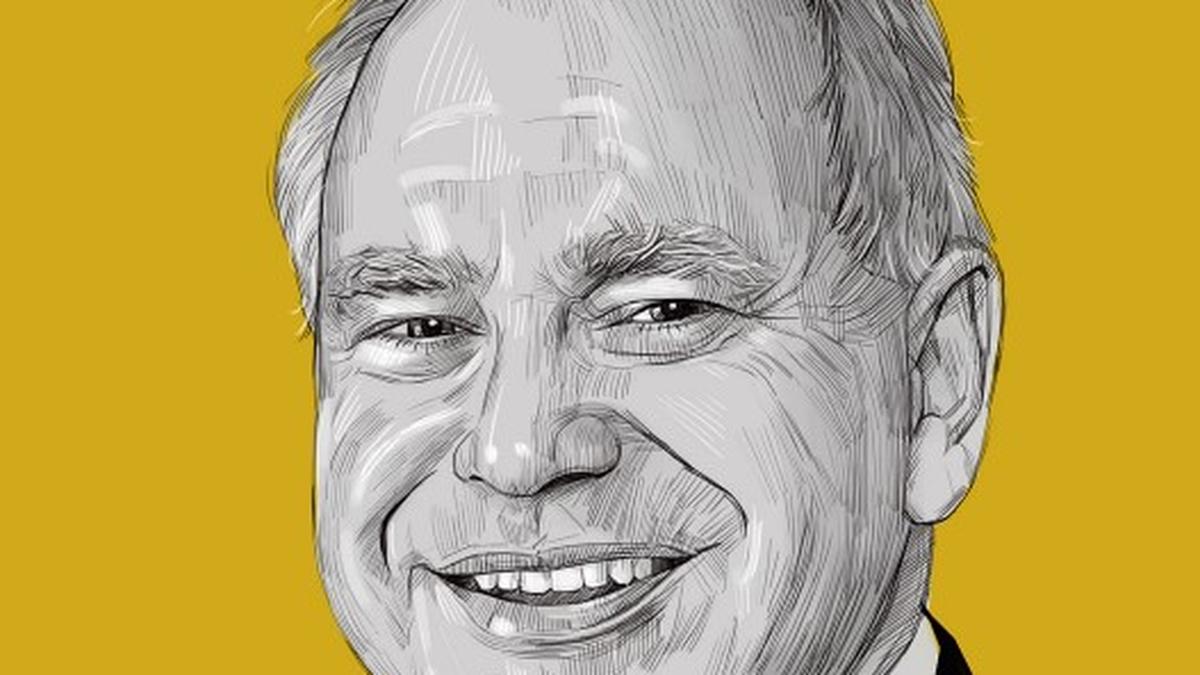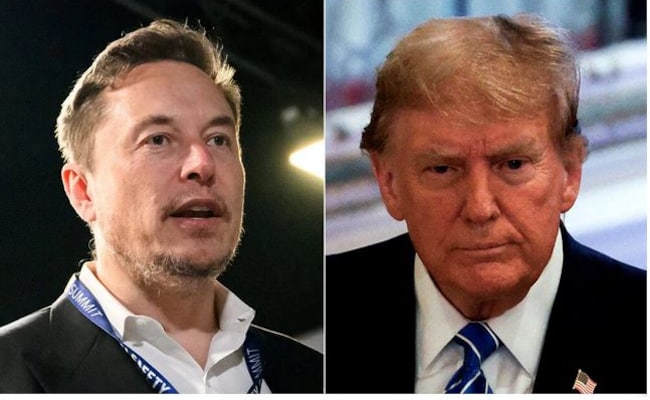Tim Walz, Governor of Minnesota, may not in his wildest dreams have imagined that one day he would be picked as a running mate alongside a U.S. presidential candidate, yet that was indeed how the plot twist on the Democratic side played out at this tail end of the 2024 election season.
Mr. Walz, a man whose demeanour has been described as “folksy” and who has said on the record that Republican challenger and former President Donald Trump’s policy priorities were “weird”, may in fact turn out to be the perfect foil to Kamala Harris, the Democratic Party’s presumptive nominee for the race to the White House in November. Not only do the two Democratic leaders’ profiles offer a balance of gender and racial parity for their campaign, but their track records suggest that their popular appeal among the electorate may be as broad as the party could hope.
Ms. Harris is seen as a tough former prosecutor who speaks out strongly on core Democratic issues such as reproductive rights, and Mr. Walz has a reputation for flipping Republican districts in favour of Democrats by reaching out to independent and undecided voters.
In a sense, Ms. Harris’ pick was a close call, and many had assumed that the frontrunner in that race was Josh Shapiro, Governor of Pennsylvania, a critical swing State whose votes the Democrats will certainly need if they’re to win the presidency. In this context, her selecting Mr. Walz says more about his personality and antecedents than it does about the calculus of regional politics for the election.
So, what does Mr. Walz bring to the table?
Small-town childhood
Born to a middle-class family — his father was a school teacher — in West Point, Nebraska, a small town, and graduating from high school from an even smaller town called Butte, Mr. Walz has said his values were shaped by such a rural upbringing: “A town that small had services like that and had a public school with a government teacher that inspired me to be sitting where I’m at today.”
He went on to graduate with a degree in social science education from Chadron State College in Nebraska and an MSc in educational leadership from Minnesota State University in 2001. Following the footsteps of his father, an Army veteran who served in the Korean War, Mr. Walz served in the Army National Guard after high school. He ended up serving in the Army for a total of 24 years, during which time he rose to the rank of command sergeant major and then retired from the 1-125th Field Artillery Battalion in 2005.
The gist
Born to a middle-class family in West Point, Nebraska, a small town, and graduating from high school from an even smaller town called Butte, Tim Walz has said his values were shaped by such a rural upbringing
In 2006, Mr. Walz stood for Congress in Minnesota’s first district, “a heavily rural area covering the south of Minnesota where only one other Democrat had won in the preceding century”.
His consistent record of popularity with his constituents was reflected in the gubernatorial capacity as well, as Minnesota voted for him not only in 2018 but also in 2022, making him the present incumbent
After completing his university education, he spent a year teaching in China as part of one of the first cohorts of American educators authorised by the U.S. government to teach in Chinese high schools — clearly an experience that had a lasting influence on him, as he is said to still speak Mandarin.
Democratic representation
It would have been expected that with this diverse and rich experience under his belt Mr. Walz would plunge deeper into the education sector and the teaching profession, yet that was not to be. The story goes that during the 2004 presidential election, Mr. Walz was teaching and took his class to a George W. Bush campaign event to give his students a sense of what democratic politics looked like. When the Secret Service at the event saw that some of his students were sporting clothing indicating that they were supporters of Bush’s Democratic opponent, John Kerry, they ejected the students from the rally, an act that angered Mr. Walz and propelled him towards joining politics as a local campaign manager for Mr. Kerry.
From that point on, there was no turning back for him. In 2006, Mr. Walz stood for Congress in Minnesota’s first district, “a heavily rural area covering the south of Minnesota where only one other Democrat had won in the preceding century”. Despite poor odds, Mr. Walz ended up winning with 53% of the vote. With a firm grip on this tough district, Mr. Walz was re-elected every two years there until 2018, when he retired to run for Governor of Minnesota. His consistent record of popularity with his constituents was reflected in the gubernatorial capacity as well, and his State voted for him not only in 2018 but also in 2022, making him the present incumbent.
Mr. Walz’s active career in the House of Representatives clearly underscores his credentials as a reliable progressive within the firmament of Democratic Party leaders. Not only did his former career choices of school teacher and army vet consistently win him respect among his peers and constituents over the years, but his voting record shows that he ranks among the Democratic Party mainstream — for example multiple votes over the years in favour of raising the minimum wage, supporting stem cell research, giving Medicare greater leeway to negotiate for affordable medicines, lowering tuition costs for university students and in backing reproductive rights.
He is not, however, entirely unfamiliar to controversies, personal and political, including, in the former category, an arrest, charge and related conviction in 1995, when he was still a teacher, for driving under the influence. He has since become a teetotaller. On the political front, as soon as his pick for Ms. Harris’ running mate was announced, Mr. Walz was targeted by the Republican campaign with comments such as “No one is more pro-China than Marxist Walz.”
Yet, the truth is that Mr. Walz, while no doubt cherishing his time teaching in China and even setting up a business with his wife that organised annual summer educational trips to that country, is fairly hard-nosed on his view about violations of human rights in the region.
He is known, for example, to have met with both the Dalai Lama and high-profile Hong Kong democracy activist, Joshua Wong prior, to the latter’s arrest, when Mr. Walz was a Congressman. Reports note that during his time in Congress, Mr. Walz spent more than a decade serving on the Executive Commission on China, described as “a body focused on scrutinising the Chinese government’s human rights abuses”.
Safe pick
While it is expected that the Harris-Walz duo will deliver, in what remains of this election season, a policy agenda and campaign effort that truly reflects the full power and value set of the Democratic Party as it stands today — and that matters for complex issues such as immigration reform and job creation — it remains to be seen whether either of them commands a sufficiently broad recognition among voters that could rival the reputation of Mr. Trump. The voters’ choice will, however, set the tenor for the brand of politics that Americans want to see for the next four years — continuing polarisation across issues, or genuine attempts to build unity across the partisan divide.













